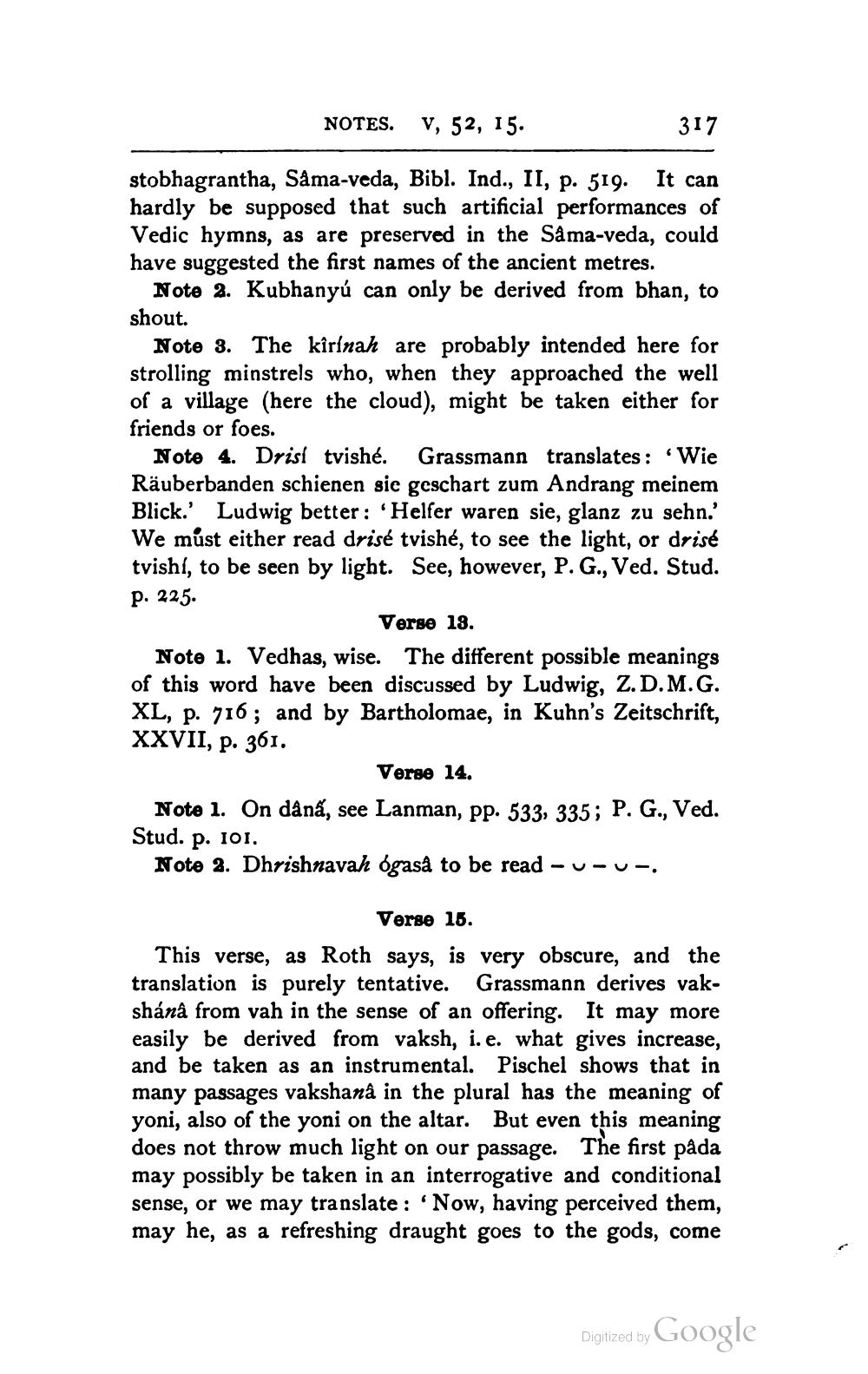________________
NOTES. V, 52, 15.
317
stobhagrantha, Sama-veda, Bibl. Ind., II, p. 519. It can hardly be supposed that such artificial performances of Vedic hymns, as are preserved in the Sama-veda, could have suggested the first names of the ancient metres.
Note 2. Kubhanyú can only be derived from bhan, to shout.
Note 3. The kîrinah are probably intended here for strolling minstrels who, when they approached the well of a village (here the cloud), might be taken either for friends or foes.
Note 4. Drisi tvishé. Grassmann translates: Wie Räuberbanden schienen sie geschart zum Andrang meinem Blick.' Ludwig better: 'Helfer waren sie, glanz zu sehn.' We must either read drisé tvishé, to see the light, or drisé tvishí, to be seen by light. See, however, P. G., Ved. Stud. p. 225.
Verse 13. Note 1. Vedhas, wise. The different possible meanings of this word have been discussed by Ludwig, Z.D.M.G. XL, p. 716; and by Bartholomae, in Kuhn's Zeitschrift, XXVII, p. 361.
Verse 14. Note 1. On dână, see Lanman, pp. 533, 335; P. G., Ved. Stud. p. 101.
Note 2. Dhrishnavah bgaså to be read - u-u
Verse 16. This verse, as Roth says, is very obscure, and the translation is purely tentative. Grassmann derives vakshánâ from vah in the sense of an offering. It may more easily be derived from vaksh, i. e. what gives increase, and be taken as an instrumental. Pischel shows that in many passages vakshanâ in the plural has the meaning of yoni, also of the yoni on the altar. But even this meaning does not throw much light on our passage. The first pada may possibly be taken in an interrogative and conditional sense, or we may translate : 'Now, having perceived them, may he, as a refreshing draught goes to the gods, come
Digitized by
Digilzed by Google




